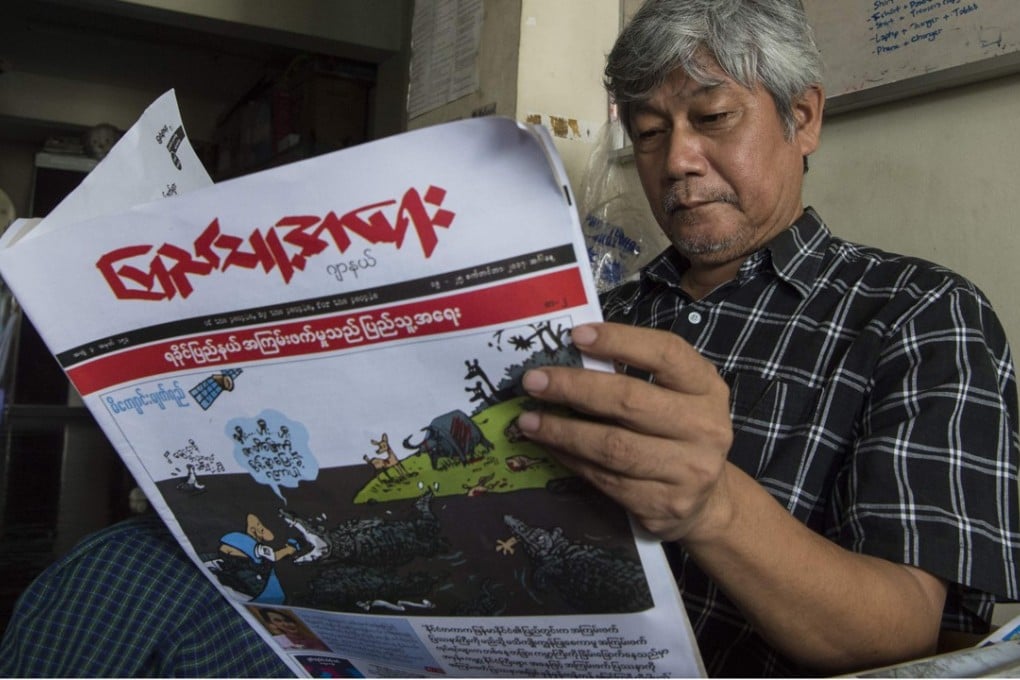
Cartoons taking aim at Rohingya Muslims are spreading rapidly across social media in mainly Buddhist Myanmar, where public opinion on the crisis stands in stark contrast to the outcry overseas.
Fanned by Myanmar’s civilian and military leaders, an information war has taken hold and is being embraced with gusto by a legion of satirists, meme-makers and internet trolls.
Local cartoonists, many of whom earned their revered status for skewering the former junta, have taken aim at the Rohingya.
One widely-shared sketch shows a group of crocodiles swimming away from a bank of mutilated animals towards an eager Western cameraman.
“I had to flee my motherland,” a crying crocodile says into the microphone, a swipe at the testimonies of Rohingya refugees who have arrived in Bangladesh with accounts of atrocities by Myanmar’s army.
“There is something untrue about what [the Rohingya] are saying,” said Win Naing, one of Myanmar’s most famous cartoonists.